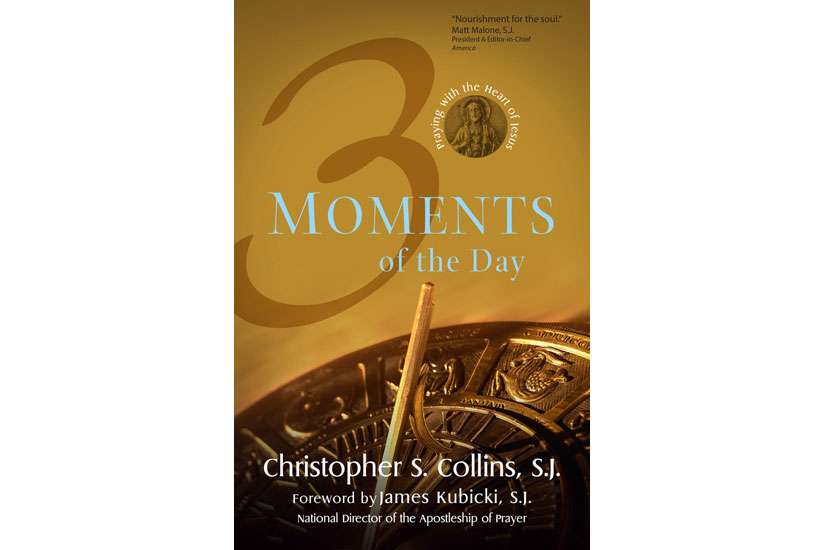Fr. Chris Collins, National Director of the Apostleship of Prayer in the United States, presents a simple prayer structure which he describes as “the three moments.” It is based on the prayer method of St. Ignatius of Loyola in his Spiritual Exercises and incorporates devotion to the Sacred Heart of Jesus. Despite his academic standing as assistant professor of systematic theology at St. Louis University, Collins is well known as a retreat master. It is easy to see why. His writing is easy to understand, simple, direct, yet profound.
Each morning should ideally begin praying the Morning Offering prayer — what Collins calls the first moment of the day. It’s about starting the day right, and offering the entire day — the good and the bad — to God for the salvation of souls, the reparation of sin and reunion of all Christians. He insists that “it disposes us to being able to recognize God in daily life” and “orients our imagination and desires for the rest of the day.”
Collins’ attitude to each new day reminds me of a quote from Anne of Green Gables. “Tomorrow is a new day with no mistakes in it yet.” Rather than simple or simple-minded optimism, Collins reminds us in a real way that there will be bad with the good and God will be with us, even if mistakes are made.
We aren’t always able to acknowledge or recognize our mistakes for what they are and this is where the second moment of each day comes in: the examen or an evening reflection. As described by Collins, the examen should invite God to speak to our hearts, allowing Him to reveal how He was present and how He blessed us. It should also help us to identify patterns of negative behaviour. Ultimately, it should also lead us to simply be in His presence.
With the day routinely book-ended in prayer, the third moment comes into play: living the Eucharist. Collins breaks down the parts of the Mass. For this Jesuit priest the Mass is a model of the “perfect pattern for our daily lives.”
Collins provides some concrete examples of how God can touch people profoundly when they unite with Him through prayer and the Eucharist. He offers hope to everyone that a relationship with God is possible and less complicated than some might make it out to be.
He also talks about healing and the role of the Sacred Heart in that process as we journey toward “becoming our authentic selves.”
To help us ponder our current state, Collins ends each chapter with three to four questions and reflections. Ultimately, he is challenging the reader to discover how they are part of God’s story — how He is already there and what sins and negative habits need to be left behind so we can fully live within His narrative.
This is an easy read and a good starting point for anyone struggling with prayer. All of us who aim to become more aware of how God is present and acting in our lives could put Collins’ simple and profound formula to use.
(Savoie is a freelance writer in Ottawa.)


